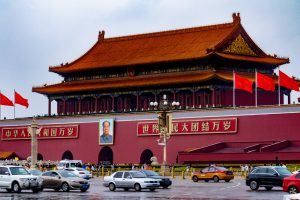DEFINING FAKE NEWS
Article 19(1) (a) of the Constitution of India guarantees freedom of speech and expression. The freedom of mass media (newspaper, magazine, radio, internet etc) is derived indirectly from this provision of law. The courts have also evolved jurisprudence to read right of ‘Freedom of the Press’ implied within Article 19 (1) (a). In 1950, the Supreme Court in Romesh Thappar v. the State of Madras [26 May 1950]. The freedom of the press is the foundation of all the democratic countries. The court in its various judgments has held that law could impose only those restrictions on the exercise of this right, which were allowed by Article 19 (2) of the Constitution.
India is flooded with a variety of news portals, tv channels, newspapers for the dissemination of information in the form of news for our society. So on one hand, democracy needs to provide freedom of the press and on the other hand, needs to handle the fake news challenges. What exactly is fake news? Is it something new? Whether there is any law in India to check it?
The articles on journalism generally provides-‘News’ means verifiable information, however, the definition of it cannot be traced in law books.
Fake news is a form of news consisting of deliberate disinformation spread via traditional news media (print and broadcast) or online social media. The real news, however, has the characteristic of verifiability.
Disinformation is generally used to refer to deliberate attempts to confuse or manipulate people through delivering dishonest information to them. Fake news is an invention of lie which is created by people on social media platforms especially on WhatsApp and Facebook.
Misinformation is generally used to refer to misleading information created or disseminated without manipulative or malicious intent.
Both are problems for society, but disinformation is particularly dangerous because it is frequently organised, well resourced, and reinforced by automated technology.
HISTORY OF THE FAKE NEWS
Mobilising and manipulating information was a feature of history long before modern journalism got established. 21st century, however, has seen the growth of information as disinformation and misinformation on an unprecedented scale. Powerful new technology makes the manipulation and fabrication of content simple and social networks engaging huge population cause faster dissemination.
LAWS RELATING TO THE FAKE NEWS
There are various laws dealing to resolve the dispute and issues arising due to fake news.
Under the Press Council Act, 1978, the Council by the name of Press Council of India has been established with effect from 1st March 1979. Section 13 of the Press Council Act, 1978 lays down the objects and functions of the Council.
The important functions of the Council are:
-
- to help newspapers and news agencies to maintain their independence,
- to build up a code of conduct for newspapers, news agencies and journalists,
- to keep under review any development likely to restrict supply and dissemination of news of public interest and importance.
- To concern itself with the developments such as the concentration of or other aspects of ownership of newspapers and news agencies which may effect the independence of the press.
For raising any false alarm of a national disaster- Section 54 of the Disaster Management Act, 2005 provides Punishment of false warning
Nowadays Spreading rumours are common. Rumours affect the morale of the people. There are some laws to take legal action against anyone who spreads rumours about the virus and causes a state of panic among the general population. We don’t have a specific law to deal with this issue of fake news and rumours but we have a provision which deals with consequences of causing public mischief under Section 505(1) of the Indian Penal Code, 1860.
Section 505 of IPC- Statements conducing to public mischief
Whoever makes, publishes or circulates any statement, rumour or report
(a) with intent to cause, or which is likely to cause, any officer, soldier, sailor or airman in the Army, Navy or Air Force of India to mutiny or otherwise disregard or fail in his duty as such;
(b) with intent to cause, or which is likely to cause, fear or alarm to the public, or to any section of the public whereby any person may be induced to commit an offence against the State or against the public tranquillity; or
(c) with intent to incite, or which is likely to incite, any class or community of persons to commit any offence against any other class or community;
Under this section, any person who is caught spreading rumour shall be punished with imprisonment which may extend to three years, or with fine, or with both.
Any person who has suffered under the impact of fake news can also file for defamation.
Section 499 Defamation.—Whoever, by words either spoken or intended to be read, or by signs or by visible representations, makes or publishes any imputation concerning any person intending to harm, or knowing or having reason to believe that such imputation will harm, the reputation of such person, is said, except in the cases hereinafter expected, to defame that person.
Explanation 1.—It may amount to defamation to impute anything to a deceased person, if the imputation would harm the reputation of that person if living, and is intended to be hurtful to the feelings of his family or other near relatives.
Explanation 2.—It may amount to defamation to make an imputation concerning a company or an association or collection of persons as such.
Explanation 3.—An imputation in the form of an alternative or expressed ironically, may amount to defamation. Explanation 4.—No imputation is said to harm a person’s reputation, unless that imputation directly or indirectly, in the estimation of others, lowers the moral or intellectual character of that person, or lowers the character of that person in respect of his caste or of his calling, or lowers the credit of that person, or causes it to be believed that the body of that person is in a loathsome state, or in a state generally considered as disgraceful.
ETHICS OF PUBLICATION
What exactly is journalism in the Digital Age?
Whose interests should a practitioner of journalism serve?
Should practitioners of journalism be held accountable for the content they produce/publish? If so, why, and by whom? If not, why not?
What ethical obligations to their sources, subjects, and audiences do journalism practitioners have?
What fresh ethical dilemmas now need to be considered by journalism practitioners in the context of ‘information disorder’?
The above questions are generally outlined in the following seven basic principles, which govern the ethics of publication broadly and are also provided in the Norms of Journalistic Conduct- Press Council of India.
-
- Accuracy: Journalists cannot always guarantee ‘truth’ but being accurate and getting the facts right remains a cardinal principle of journalism.
- Independence: Journalists must be an independent voice. This means not acting, formally or informally, on behalf of special interests jeopardising the interests of transparency.
- Fairness: Fair reporting of information, events, sources and their stories involves sifting, weighing and evaluating information open-mindedly and perspicaciously.
- Confidentiality: One of the foundational tenets of investigative journalism is the protection of confidential sources. This is essential for maintaining the trust of information sources including whistleblowers.
- Humanity: What journalists publish or broadcast can be necessarily hurtful, yet the impact of journalism on the lives of others must be considered. The public interest is the guiding principle here- social-justice-oriented style of journalism.
- Accountability is a sure sign of professionalism and ethical journalism; correcting errors promptly, prominently and sincerely; listening to the concerns of audiences and responding to them.
- Transparency in practice supports accountability and assists in the development and maintenance of trust in journalism.
LAWS TO PREVENT SPREAD OF FAKE NEWS INTERNATIONALLY
Australia is in the early stages of responding to fake news and disinformation. The main Australian Government response so far has been the creation of a task force to address threats to electoral integrity, though the foreign interference laws, which passed the Parliament in June 2018, also have some relevance to the issue.
The UK House of Commons Digital, Culture, Media and Sport Committee has examined the issue of disinformation and fake news since January 2017, focusing on issues such as the definition, role and legal liabilities of social media platforms; data misuse and targeting; and foreign interference in elections.
The UK committee tabled a final report in February 2019. Recommendations made by the committee include a compulsory code of ethics for technology companies overseen by an independent regulator with powers to launch legal action and obligations on social media companies to take down known sources of harmful content, including proven sources of disinformation.
Based on the update available in an article in Down to Earth, on May 8, 2019, Singapore passed a law against fake news. Malaysia, France, Germany and Russia already have such a law. Each of these countries has dealt with the fake news problem in different ways, including through the imposition of bans, penalties and through imprisonment. The new law gives the government and any minister overarching powers to force traditional and social media platforms to issue “corrections” to content that they deem to be “fake news” in the “public interest”. The punishment includes a prison sentence up to 10 years as well as a fine of a million Singaporean dollars.
RECENT JUDGMENT ON FAKE NEWS
The apex court in an intervention application filed in Alakh Srivastava vs. Union of India [W.P Civil (428/2020)] on the issue of migrant labour has observed in its order regarding fake news:
Dr Tedros Adhanom Ghebreyesus, Director-General, World Health Organisation (WHO), recently stated as under:
“We are not just fighting an epidemic; we are fighting an infodemic. Fake news spreads faster and more easily than this virus, and is just as dangerous.”
The migration of a large number of labourers working in the cities was triggered by panic created by fake news that the lockdown would continue for more than three months. Such panic-driven migration has caused untold suffering to those who believed and acted on such news. In fact, some have lost their lives in the process. It is therefore not possible for us to overlook this menace of fake news either by electronic, print or social media.
CONCLUSION
Fake news is increasingly seen as a threat to political legitimacy, democratic institutions and social cohesion by governments around the world. Governments across the world have responded to the threat posed by digital disinformation in various ways, including:
- laws against spreading false information online
- blocking of social media and other online platforms
- laws against foreign interference in elections
- increased regulation of social media
- media literacy campaigns
- social media monitoring and
- promotion of factual content.
Internal fact-checking is also an important aspect of journalism which can check fake news. This does not mean there is just a simple form of fact narrative journalism. A range of journalistic styles and stories with different narratives based on fairness, contextuality, relevant facts, etc can help bring the fact. However, it is when content departs from journalistic principles per se, and especially when it still poses as news, that we are no longer dealing with journalism, but a particular form of disinformation. Indian democracy needs to empower its democracy with laws that need to empower hardworking journalist and its democracy to help disseminate news and to check any disinformation in the form of fake news.
LEGAL RESEARCHER OF THE ARTICLE The article is based on the Legal Researcher cum Intern of Indian Law Watch MANSI KANOJIA, 2nd Year BA LL.B Student of Gautam Buddh University.













Add Comment